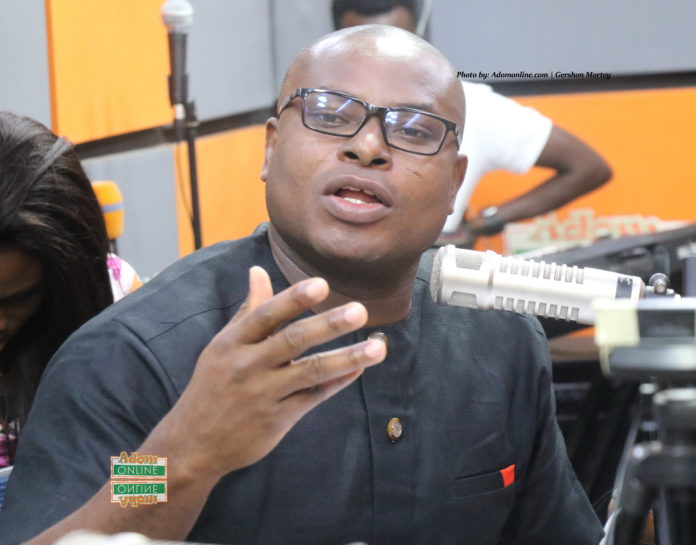Richard Ahiagbah, the Director of Communications for the New Patriotic Party (NPP), has shed light on the intricate details surrounding the Bank of Ghana’s (BoG) initiative to construct a new headquarters.
He shared the revelations during an interaction with journalists in the Volta Region, where he urged the media to provide context to the economic challenges facing the country.
His account of the BoG’s new head office dates back to a period before Ghana’s Fourth Republic, contrary to comments made by the Minority Leader in Parliament, Dr Casel Ato Forson.
Dr Forson had disassociated himself and the NDC from any involvement in the Central Bank’s efforts to establish a new headquarters.
Mr Ahiagbah’s account presents a timeline spanning from 1990 to 2020, during which both the NPP and NDC have governed the country, including the management of the Central Bank.
According to Mr Ahiagbah, the Bank of Ghana embarked on a search for a suitable and secure location for a new headquarters in the 1990s. With the central business district encroaching upon the existing head office on Thorpe Road and the need for expansion to accommodate its growing operations, the bank sought to acquire adjacent property.
While efforts to acquire nearby property yielded limited success, Mr Ahiagbah revealed that the bank managed to secure the Queensway Bookshop and a parcel of land near Melcom, both free from ownership conflicts.
He further explained that “in 2012, the Bank was granted an unnumbered 5.19-acre plot in Accra Central by the Lands Commission, for which 791,580 Ghana cedis (GHS) was paid. However, the Ministry of Foreign Affairs and Regional Integration contested the bank’s ownership claim, refusing to relinquish the land.”
Continuing the search for a suitable location, Ahiagbah shared that in 2013, Messrs Callister Ghana Limited, represented by Mr. Kingsley Kwame Awuah-Darko, proposed a 5.341-acre land near Ridge Hospital for 32,313,050 US dollars (USD), which was eventually rejected after due diligence.
He noted that similar offers followed, including a 6-acre parcel near Airport City by Messrs Dream Realty, and a 7-acre offering from Messrs KAA Law. Due to various reasons, all these offers were declined. In 2015, Messrs IbisTek Ltd made an offer for a 20-acre plot near the Achimota Forest at USD 2.5 million per acre. Despite pursuing negotiations, due diligence led to the recommendation against the acquisition.
Ahiagbah added that the Bank attempted to negotiate a settlement of 1,200,000 Ghana cedis (GHS) with Messrs IbisTek Ltd for failing to acquire the land.
He added that ultimately, the Bank underwent due process and secured the land in West Ridge through a government-initiated Executive Instrument, 2020 E.I 304, for its ongoing new headquarters project.
Meanwhile, Casel Ato Forson, the NDC minority leader in Parliament, issued a press release dissociating himself from the construction process.
He maintained that neither he nor the Bank of Ghana Board were involved in such processes.
Forson criticized the decision to build a new headquarters amidst financial challenges faced by the Bank, suggesting that it exhibited misplaced priorities.
Ahiagbah argues that as of 2015 when the NDC was in power and at which time Ato Forson was a Board Member of the Bank of Ghana, the country was at the peak of its power crisis and had headed off to the IMF for support for an economy they had run aground.
The IMF on its website attributed Ghana’s economic challenges in 2015 to “out-of-control government spending, largely to pay salaries of an overgrown civil service.”
“By 2015, Ghana’s economy was in trouble, hobbled by widening current account and budget deficits, rampant inflation, and a depreciating currency. Credit dried up as interest rates rose and banks’ bad loans piled up.
“At the root of Ghana’s woes was out-of-control government spending, largely to pay salaries of an overgrown civil service,” the IMF says on its website.
ALSO READ:

